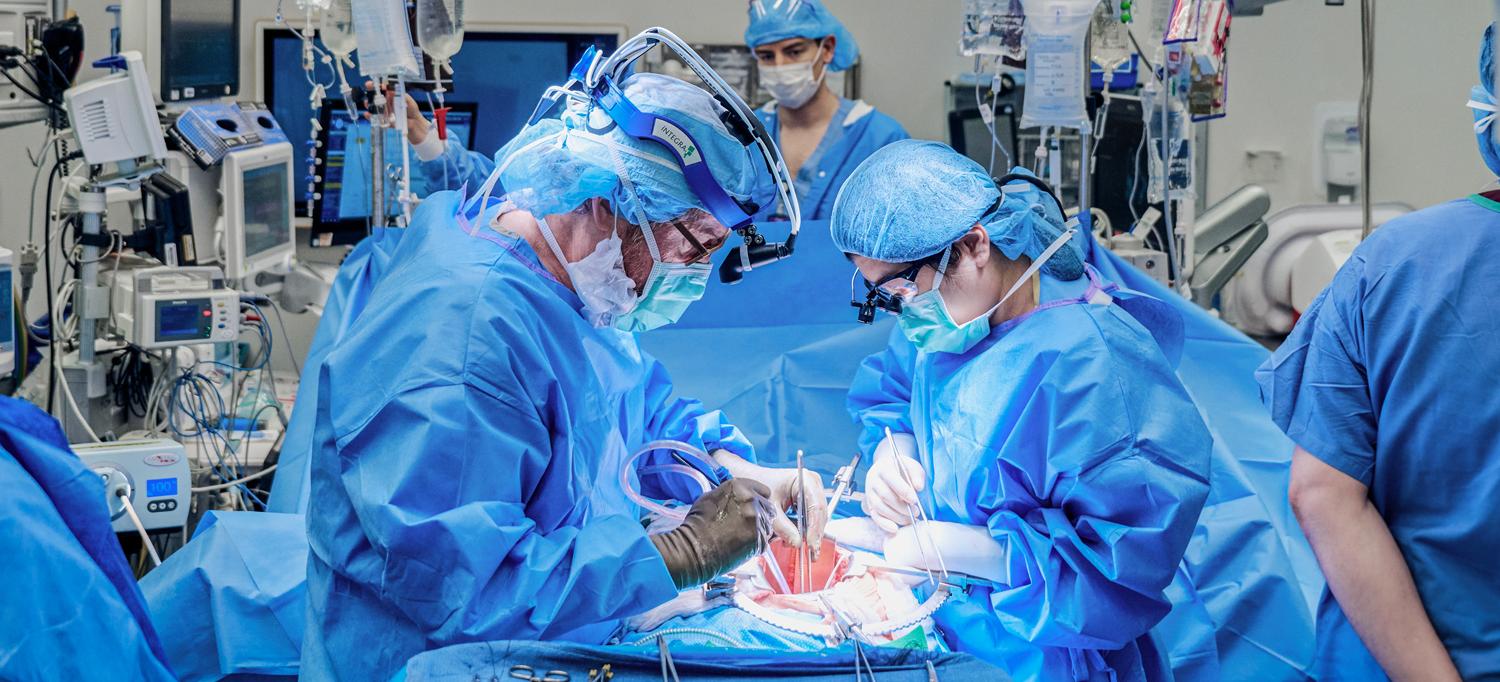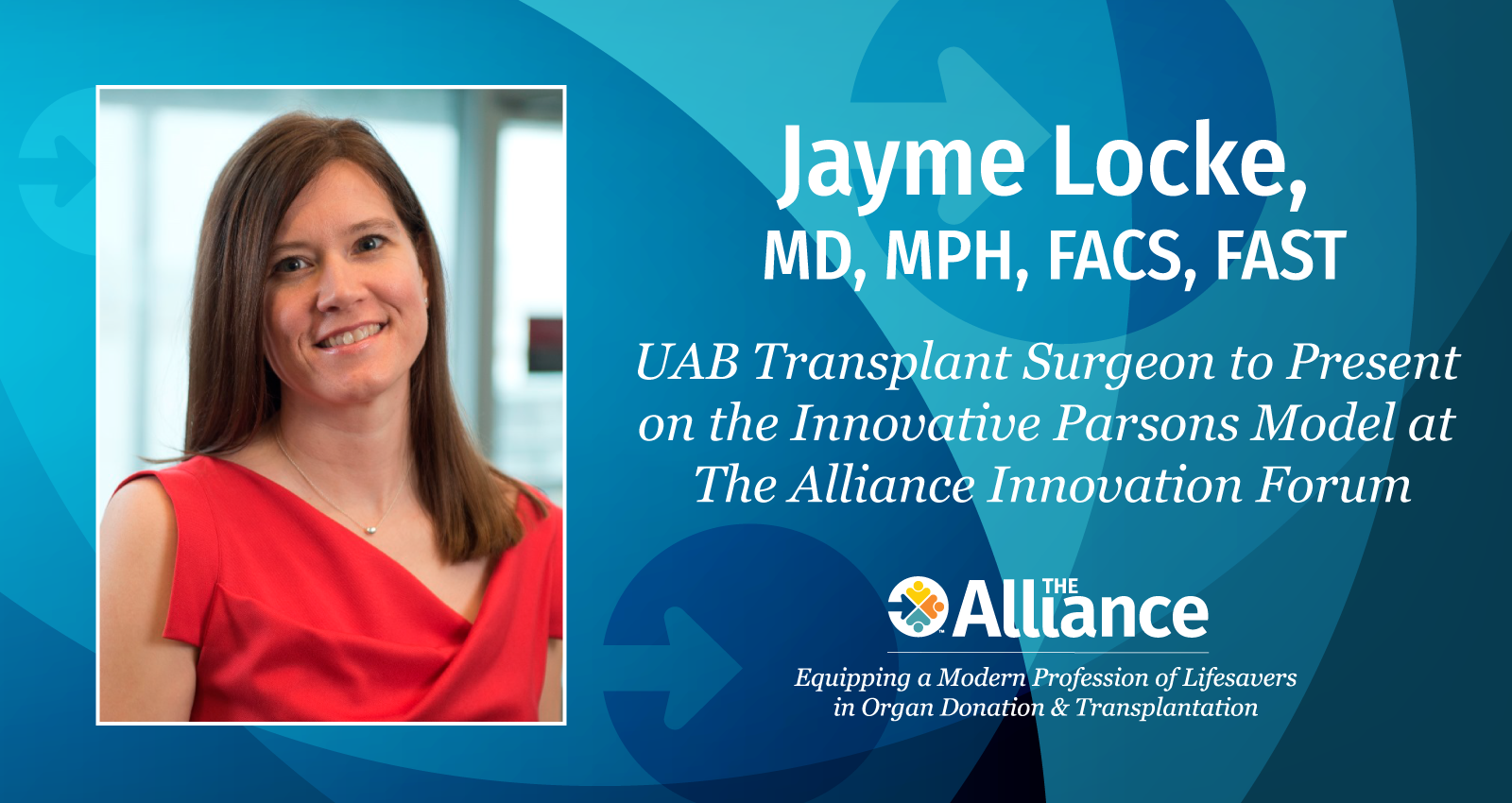Hedi Aguiar’s faith is her source of strength, and it leads her to strive to live with both humility and grace. “I don’t see myself as anything special or as an expert, because there’s always opportunity for growth,” says Aguiar, founder of the consulting firm, Fundamental Roots. “Faith is my foundation, but that doesn’t make me perfect, far from it!”
“When there’s grace and humility, we can get so much further. What’s important to me is that as a donation and transplantation community, we go back to the roots of grace and humility. The mission of donation and transplantation is so important that we need to keep it in the forefront. On behalf of the grieving families who make an incredible gift of donation, we need to ask how do we best serve them? How do we best show up for them? How do we best steward the gift that they’re making?”
Aguiar founded Fundamental Roots six years ago and serves as a consultant for the Organ Donation and Transplantation Alliance (The Alliance) contributing to the Spotlight series, the state law resource, and currently she is working on the DCD guide. She has presented on several webinars and the conversation series; most recently, in November 2023, she was a panelist for The Alliance’s Advancement Series, “Does our Messaging Match our Mission,” which resonated with many in the donation community and is available on-demand. Prior to founding Fundamental Roots, she served as The Alliance’s senior director of programs for four years, from 2015-18, where she led various national initiatives, councils, and workgroups.[/vc_column_text]
Cultural Intelligence from Lived Experience
Aguiar has lived in seven countries on four continents and speaks four languages—German, English, Portuguese, and Indonesian. She grew up in Indonesia for 17 years along with her two younger brothers. Her parents were missionaries with the Overseas Missionary Fellowship. Her father is from Germany and served as an agricultural engineer to help increase rice harvests, a staple food for most Indonesians, and since 1980, served as a pastor in different areas. Her late mother was from England and was a nurse by training.

Aguiar is a TCK (Third Culture Kid), meaning she spent her formative years in a culture other than her parents’. “TCKs have a legal culture (based on passport) even though we may not have an experiential or emotional connection to that or those countries, the second culture is our geographic cultures, cultures we experience first-hand by living in them and emotionally engaging, but we are not legally recognized as belonging, and the third culture is relational. Our culture is not located in geography but in our relationships and experiences of growing up between different cultures. TCKs feel like we don’t belong anywhere, but we’ll make home wherever we are. We are influenced by every culture we lived in and we often have ‘funny’ accents! I am an example of having such an accent.”
TCK’s have been called citizens of everywhere and nowhere and through Aguiar’s frequent moves she learned to employ many soft skills to quickly adapt to her ever-changing environments. When it came time for her to go to school, she flew as a 6-year old, by herself, accompanied by an airline hostess, to a German boarding school in the Philippines. During second grade, the school moved to Singapore. Three times a year she visited her parents for a few weeks. Growing up this way, she says taught her to mature and be independent at a young age.

Mother’s Nursing Sparked Her Interest from a Young Age
Aguiar’s mother, a nurse by training, supported her father’s work in Indonesia. While she was not licensed to work as a nurse in Indonesia, her skills and knowledge became very valuable: “When children came to play at our house, my mother noticed that many children had infected wounds on their body. They would go to the local Puskesmas (a clinic) and were given antibiotic injections but no wound care, so the wounds would temporarily heal and then re-open. My mother realized that wound care was needed. So she started providing wound care and the wounds would heal fully and most of the time the children did not need antibiotics.”
While her mother would bandage the children, Aguiar said she would entertain the children and that inspired her to become a nurse. She attended a college of domestic science and nutrition for a year in Germany and then nursing school in London at Thames Valley University, graduating in 1995 with a Diploma of Higher Education in Nursing. In 2000, she received a bachelor’s degree in ICU nursing from the Homerton School of Health Studies in Cambridge, England. In 2011, she received a Master of Science degree in nursing as a clinical nurse specialist with a certificate in forensic science from the University of Colorado Colorado Springs.
Aguiar said it was a huge gift to recently take care of her mother at home in Germany during the last month of her life. At her mother’s funeral, she saw the impact of her mother’s continued involvement in the community when 70 percent of the attendees who came to honor her were from different countries. “Since my parents returned to Germany, they have worked with refugees and new immigrants. There were people at the funeral from Iran, Afghanistan, Syria, Bangladesh, Congo, Ethiopia, Indonesia, Albania–the list goes on and there were all different walks of faith. It’s a testament to the work my parents continued to do and the role model they provided for us as children.”
ICU Nursing and Transplant
One year into her nursing career, Aguiar transitioned into the ICU. “I liked the intensity of how sick the patients are and the challenge,” says Aguiar. “ICU nurses need to have skills in problem solving, being very strategic, and being deep critical thinkers and that suited my personality.”
During her twenty-six years working as a nurse, she had several experiences with organ donors and transplant recipients and became interested in moving into the field of organ donation. After immigrating to the U.S., she worked as a nurse and ICU Educator for several years and then, while still picking up shifts as an agency nurse, she joined the organ, eye, and tissue donation field for nine years, including roles at OneLegacy and Donor Network West, where in her last position she was the Donation Process Improvement Manager. After working for Donor Network West, she joined The Alliance team as Director of Programs and Communications.
Cross Cultural Communication Requires Humility and Grace
While she worked at the OPOs, she taught the national hospital development courses through NATCO and participated in and chaired the Hospital Development Council for the Association of Organ Procurement Organization (AOPO). Out of that work came frequent invitations to present at conferences and consult at OPOs. The invitations became so numerous that she couldn’t accommodate them and continue to hold a full-time role, so she launched her own business, Fundamental Roots.
She says the name signifies the soft skill trainings that are the firm’s focus, “Soft skills are under the surface, and we tend to ignore them. They’re like the roots of the tree. You don’t pay attention to them, but you see the fruit of them. If the fruit is good, there’s a good chance the roots are healthy. But if the roots are bad, then you’re going to see the fruit be bad or there be no fruit at all.”
Aguiar says she prefers to refer to soft skills as “fundamental” skills. The offerings of Fundamental Roots focus on different aspects of communication skills such as managing perceptions and assumptions, tact and diplomacy, negotiation, navigating conflict, collaboration, etc. One of her major focuses is teaching cross-cultural communication skills. “I focus on teaching cultural intelligence through cultural humility and cultural grace.”
She says cultural humility is required to achieve cultural intelligence (which consists of CQ drive, CQ knowledge, CQ strategy, and CQ action as described by David Livermore in his 2011 book). “Cultural humility takes being willing to be self-reflective and constantly reexamine yourself to look for your own biases and your own way of thinking, and asking, ‘Am I imposing my way of thinking onto other people, or am I setting expectations for other people based on my cultural expectations?’ It’s continuously seeking to learn and understand as culture is ever-changing. I would never proclaim myself to be a cross-cultural communication expert, because the minute you say you’re an expert, you’ve lost your humility.”
Aguiar says she coined the term cultural grace and thinks it is another essential part of cultural intelligence and offers this definition: “Make allowances for and be considerate of cultural differences, assume good intent, and be willing to be gracious and forgiving when misunderstandings occur.”
In her bridging cultural communication workshops, she strives to create a safe space for participants. Her hope is that participants feel comfortable to open up and identify the biases they’ve discovered or recognized, as well as to celebrate each other’s differences while being comfortable with their own cultural identity. “I think it’s very courageous when people are willing to let their guard down during the workshops.” For the future, she hopes to share a book she is currently working on that will tie together her personal story and experiences with cultural learnings. In the meantime, Aguiar has been hosting cultural livestreams called “Love Thy Neighbor,” which are posted to YouTube. They intend to demonstrate how to utilize cultural humility to learn from others.
Seeks to Improve Communicating with Physicians
Workshops on communicating with physicians is another dominant training offering of Aguiar’s firm. In 2020, she collaborated with Dr. Harry E. Wilkins III, trauma surgeon and now the CEO of Gift of Hope in Illinois on a book, The Art of Effective Physician Communication. The book teaches non-physicians how to communicate with physicians which Aguiar says is another form of cross-cultural communication.
“Through this work, I’ve developed a real concern and passion for physicians,” says Aguiar. “They’re hurting as a community but don’t communicate the pain that they’re going through and we’re seeing a huge number of physician suicides each year. In the workshop, we emphasize that our interactions with a physician can potentially make a huge difference and that it’s important to recognize them as human beings, listen to them, and recognize what they’re going through.”
Aguiar lives just north of Nashville, TN with her husband, whom she met at church when she lived in London. While Hedi learned to play the piano and has often sung in choirs and groups, the true musician in her family is her husband. Originally from Brazil, he played professionally and now is more focused on studio work, composing, and production.. Together, they enjoy taking nearby day trips to explore nature and go on hikes, as well as international travel to visit their families in England, Germany and Brazil, and exploring other countries. Aguiar loves doing detailed craft work such as embroidery or Diamond Arts and is an avid puzzler and loves to solve logical problems like Sudoku or nonograms. These detailed activities help her to think and process. She also loves taking long walks in nature to reflect.

I Gave You Your Story for a Reason
Aguiar frequently returns to the importance of faith in her identity. “Believing that God created me for a purpose and that I have forgiveness through the saving grace of Jesus is incredibly important to me,” she says. “A few years ago, I was speaking at a conference, and I had a beautiful hotel room with a balcony that overlooked the ocean. Early on the morning of my presentation, I was sitting out on the balcony and was praying asking God, ‘Why am I doing this presentation; who am I to talk about this?’ I heard God say to me, ‘I gave you your story for a reason.’ That gave me the encouragement that maybe there is value to my training offerings and to incorporate my story, which, I am often told has encouraged or inspired others.”





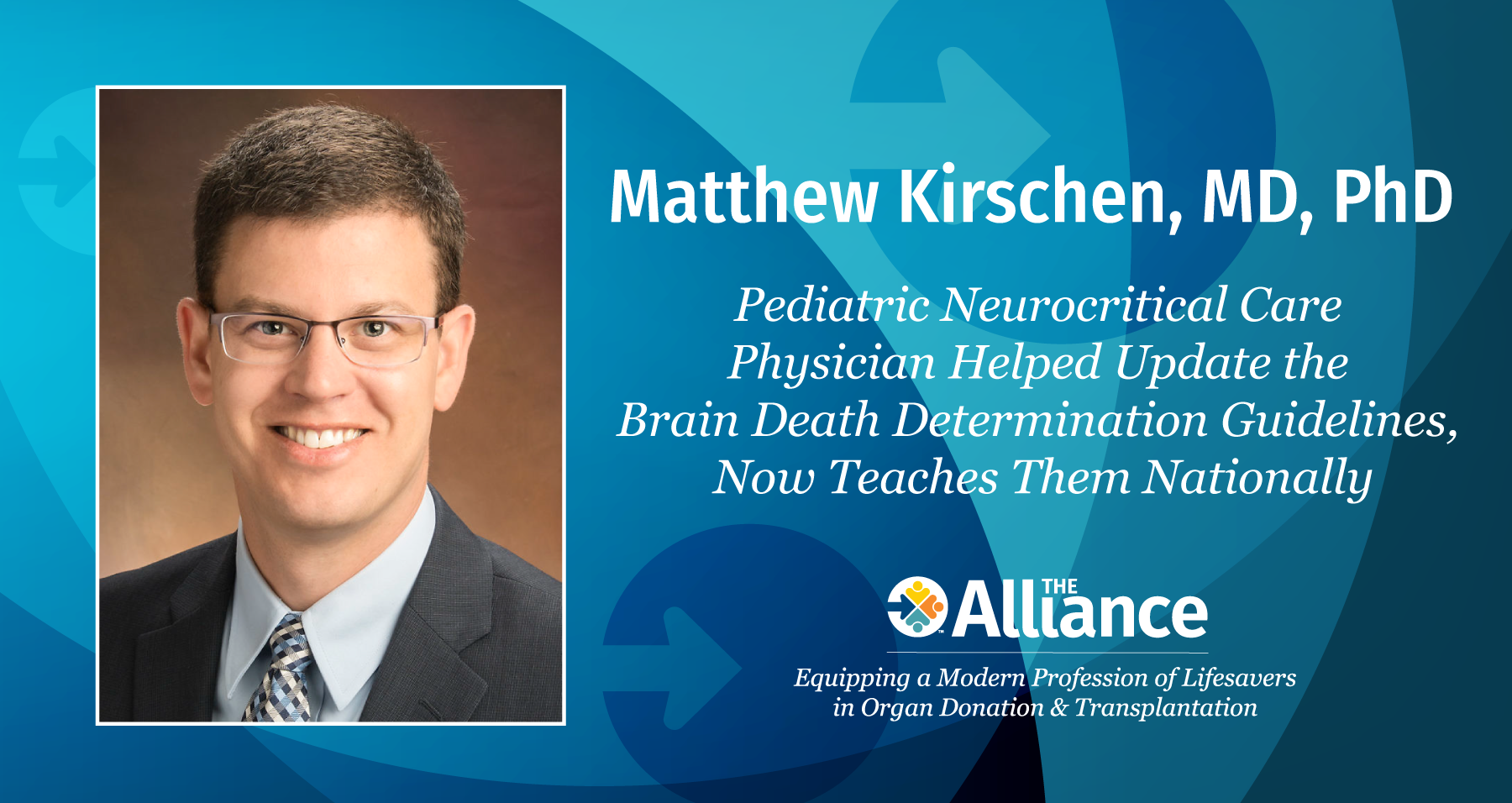
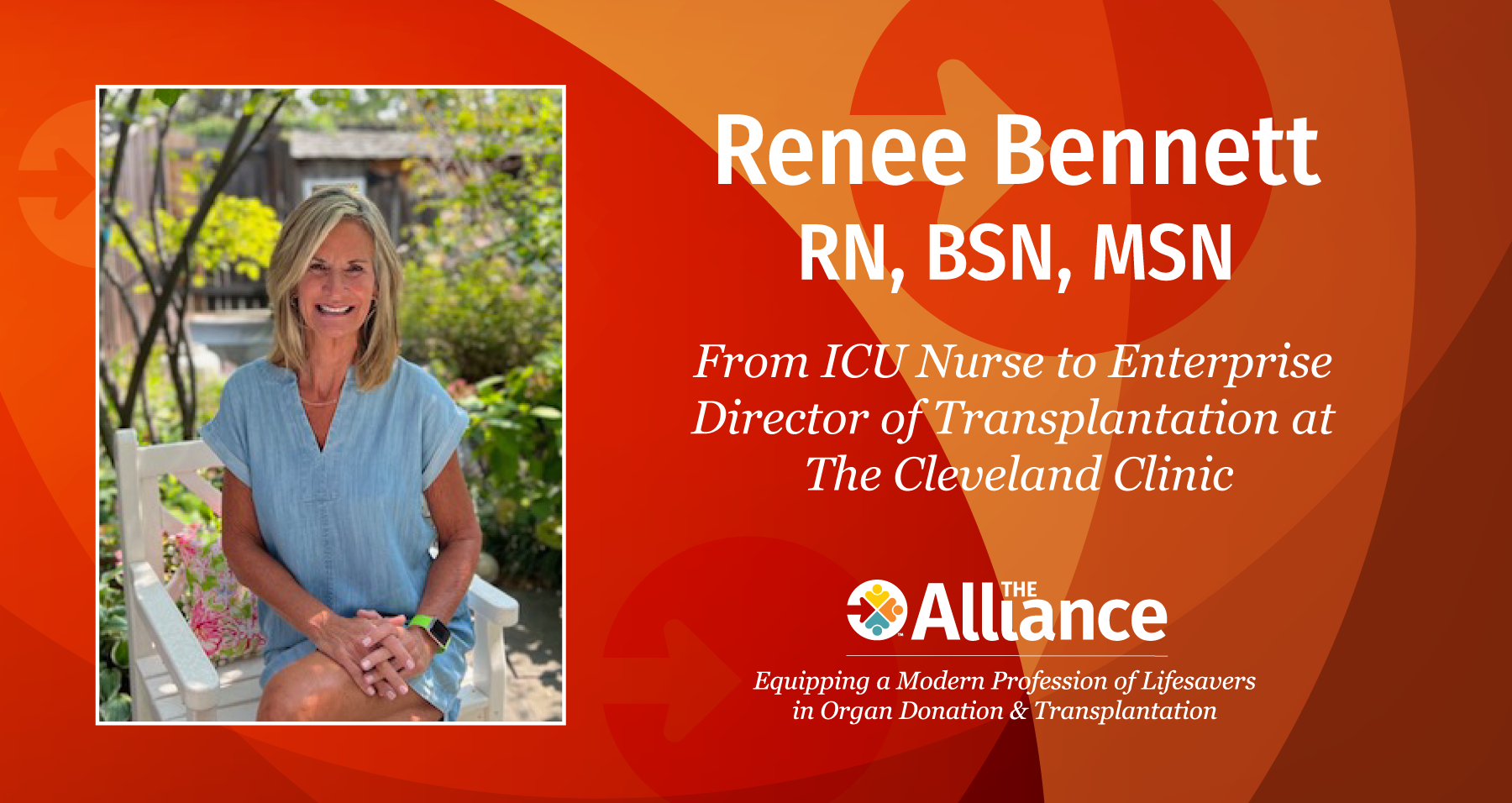



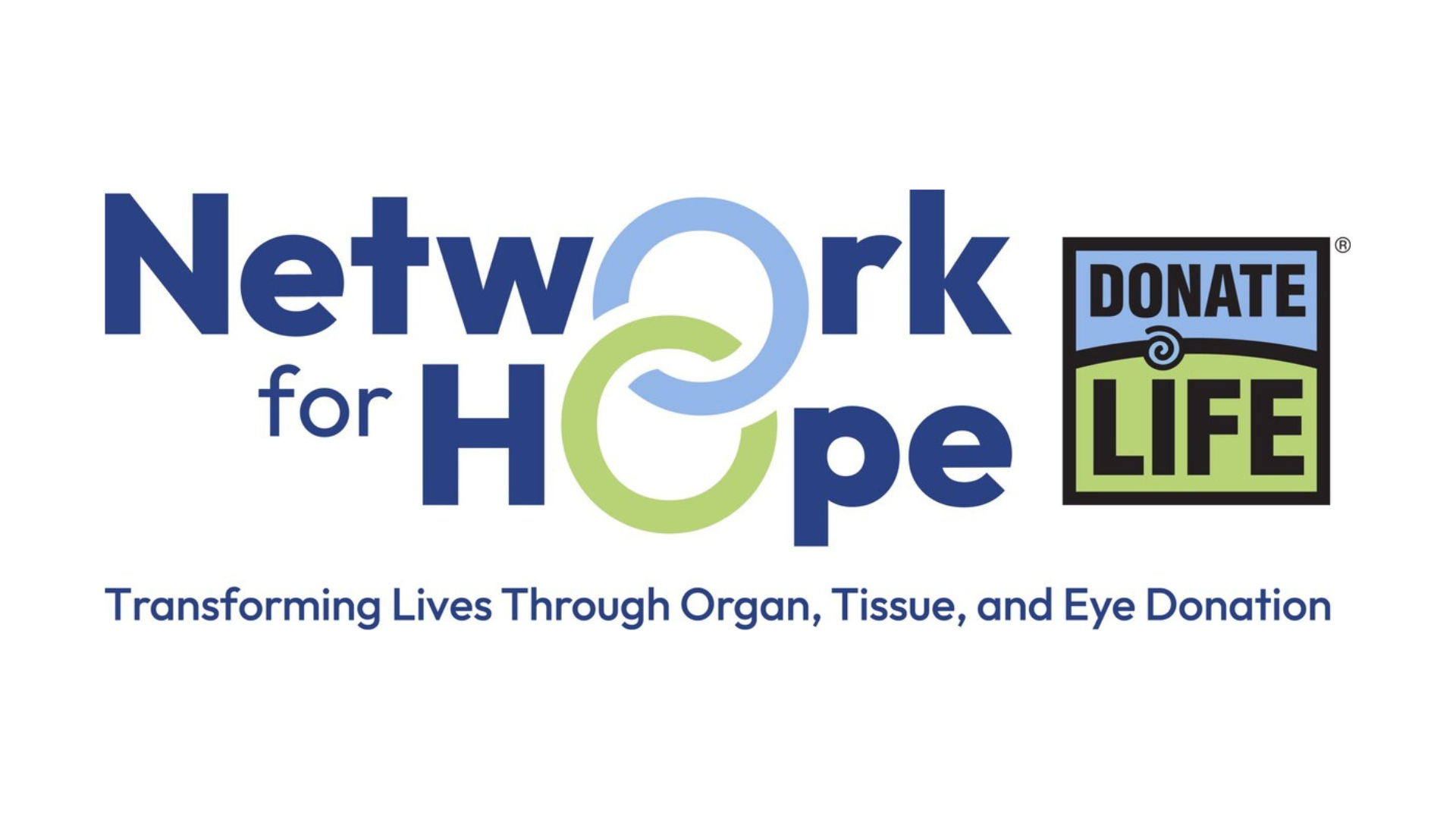
![SODApartnership[1]](https://www.organdonationalliance.org/wp-content/uploads/2024/05/SODApartnership1.png)
